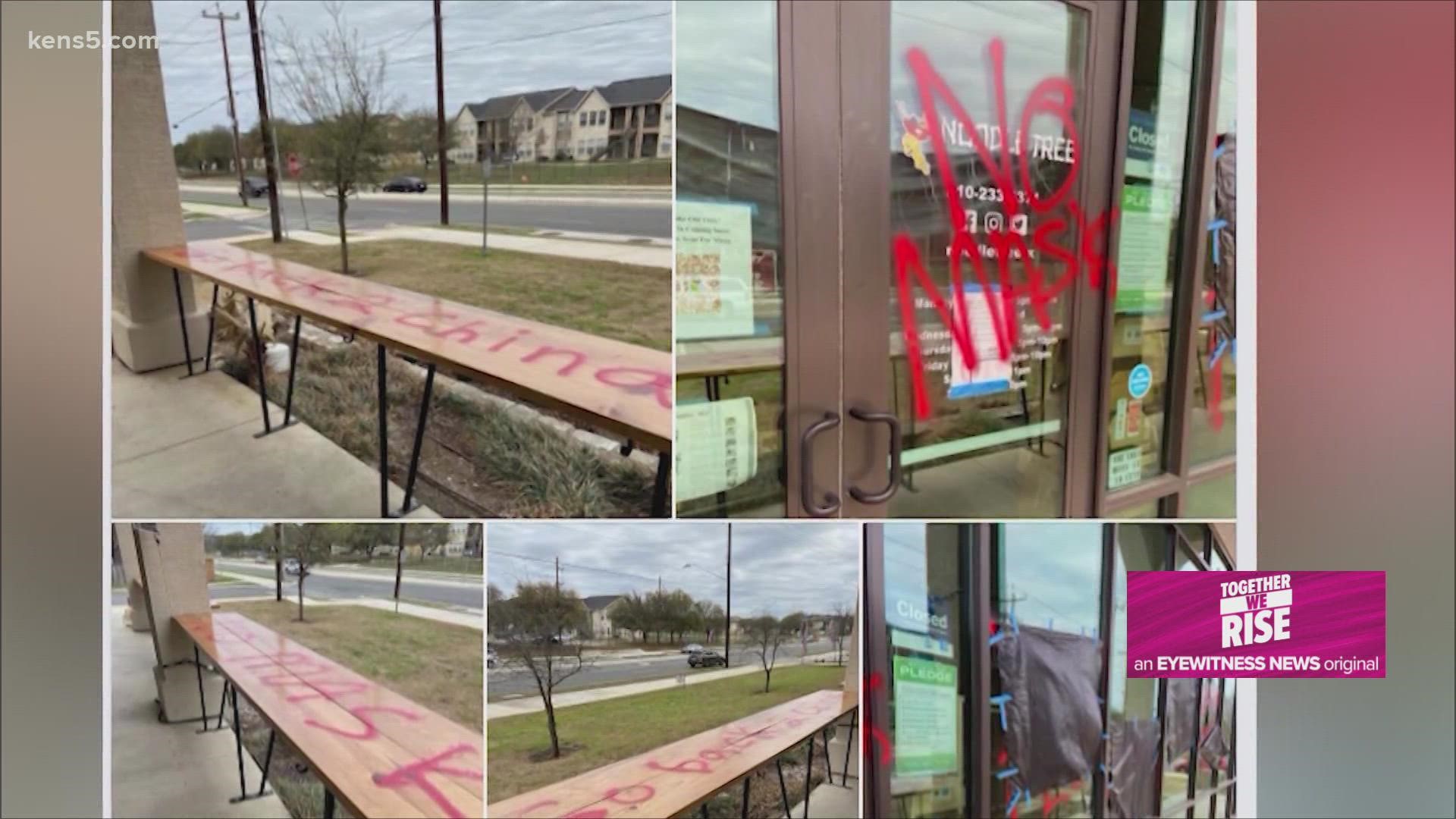SAN ANTONIO — We've seen how much damage words can do. They can be offensive or racist, and are enough to turn the outside of a local business into a canvas for hate.
Mike Nguyen knows about that as well as anyone.
Back in March of 2021, he used his free speech and got hate speech in return.
"I criticized the governor with my own opinions and some people didn't like that," he said. "So they went and vandalized the restaurant."
Nguyen owns and operates Noodle Tree restaurant on the northwest side. Last spring his business became the target of hate as callers left venomous voicemails and tagged the property with racist threats.
The worst was still to come.
"Someone found out where I lived and said, 'We're coming for you,'" Nguyen said. "Even on social media, someone even posted, 'I hope this building burns down.'"
Was it hot air, or hatred?
At what point does free speech become hate speech?
"In general, there is no universal exception for hate speech," said Michael Ariens, a First Amendment law expert at St. Mary's School of Law. "When someone writes something on a business that is an action, not just speech. It is the action of vandalizing a business that we will prosecute."
In recent years, all kinds of groups have organized protests or marches, and the Constitution allows anyone to go out and share their feelings.
But Ariens says free speech crosses the line when there is a threat or threatening action made along with it.
According to the FBI's San Antonio division, which investigates claims of hate crimes in the Alamo City, they don't have the ability to prosecute without evidence of a threat.
"Federal hate crimes are often misunderstood," FBI officials said in a statement. "Racist or offensive speech is not a hate crime."
Data from the U.S. Justice Department shows that in 2020, 66% of hate crimes were against an actual person, while 31% were inflicted against someone's property. That was a decrease compared to recent years.
"Once you bring race into it and have malice behind it, that's going too far," Nguyen said. "Even saying something as simple as 'Go back to China,' that's too far."
The open sign at Noodle Tree is back on as Nguyen shows those who targeted him that their words won't shut him down.
"Whoever did what they did wanted to send a message," he said. "But we sent a stronger message saying we're not going to let this ruin our community. We're stronger than that, and that's what keeps me pushing."

